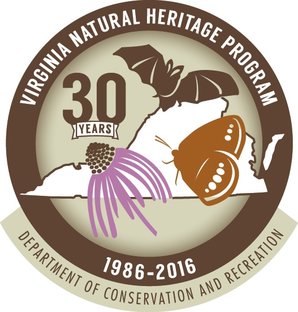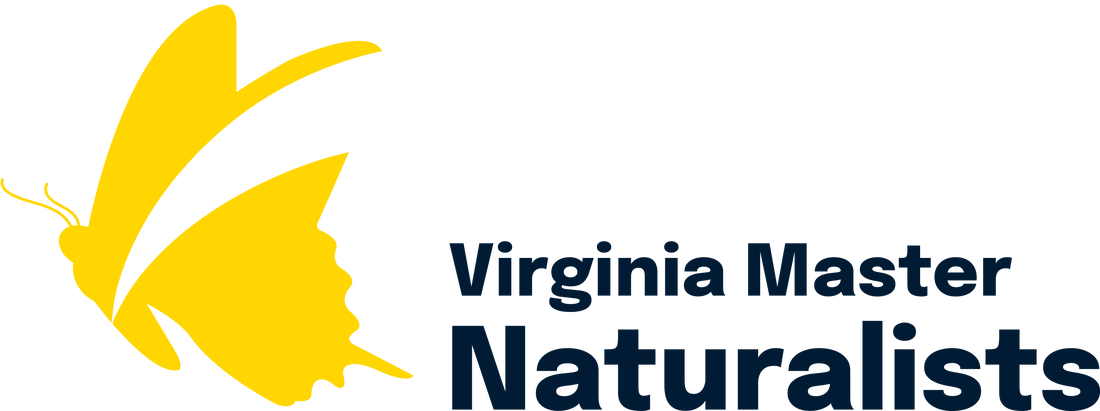
Checking in with Natural Heritage
The Virginia Natural Heritage Program with the Virginia Department of Conservation and Recreation released their annual newsletter last month. The Virginia Natural Heritage Program's mission is to conserve Virginia's biodiversity through biological inventory, data management and sharing, environmental review, land protection, and the stewardship of the Virginia Natural Area Preserves System.
In the newsletter, you can learn about Virginia's newest Natural Area Preserve, actions taken to protect one of Virginia's largest populations of hibernating little brown bats, confirmation of an endangered mussel in Nelson County, the discovery of globally rare plants and natural communities, and more.
Virginia Master Naturalists volunteer with Natural Heritage in several ways. They help provide education, citizen science, and stewardship at the Natural Area Preserves. VMNs reported more than 800 hours of service at nine Natural Area Preserves in 2016. This work is most notable on the Eastern Shore, where Dot Field, the VMN-Eastern Shore Chapter Advisor and Eastern Shore Region Steward, says, "They are true extensions of my eyes and ears and my hands and feet. Quality stewardship of Natural Heritage resources on the Eastern Shore would not be possible without Master Naturalist volunteers."
Virginia Master Naturalists also have been collaborating with Natural Heritage on the RareQuest project, through which VMN volunteers visit and document occurrences of rare species across the state.
Along with being extremely supportive sponsors of the VMN program since its inception, Virginia Natural Heritage Program staff have led classes and field trips for VMN chapters and co-developed our Virginia Biogeography curriculum. Natural Heritage vegetation ecologist Gary Fleming generously shared his high-quality photos and descriptions of Virginia's natural communities for use in our curriculum materials. You can watch a video version of his presentation on our curriculum page.
The Virginia Natural Heritage Program with the Virginia Department of Conservation and Recreation released their annual newsletter last month. The Virginia Natural Heritage Program's mission is to conserve Virginia's biodiversity through biological inventory, data management and sharing, environmental review, land protection, and the stewardship of the Virginia Natural Area Preserves System.
In the newsletter, you can learn about Virginia's newest Natural Area Preserve, actions taken to protect one of Virginia's largest populations of hibernating little brown bats, confirmation of an endangered mussel in Nelson County, the discovery of globally rare plants and natural communities, and more.
Virginia Master Naturalists volunteer with Natural Heritage in several ways. They help provide education, citizen science, and stewardship at the Natural Area Preserves. VMNs reported more than 800 hours of service at nine Natural Area Preserves in 2016. This work is most notable on the Eastern Shore, where Dot Field, the VMN-Eastern Shore Chapter Advisor and Eastern Shore Region Steward, says, "They are true extensions of my eyes and ears and my hands and feet. Quality stewardship of Natural Heritage resources on the Eastern Shore would not be possible without Master Naturalist volunteers."
Virginia Master Naturalists also have been collaborating with Natural Heritage on the RareQuest project, through which VMN volunteers visit and document occurrences of rare species across the state.
Along with being extremely supportive sponsors of the VMN program since its inception, Virginia Natural Heritage Program staff have led classes and field trips for VMN chapters and co-developed our Virginia Biogeography curriculum. Natural Heritage vegetation ecologist Gary Fleming generously shared his high-quality photos and descriptions of Virginia's natural communities for use in our curriculum materials. You can watch a video version of his presentation on our curriculum page.


 RSS Feed
RSS Feed